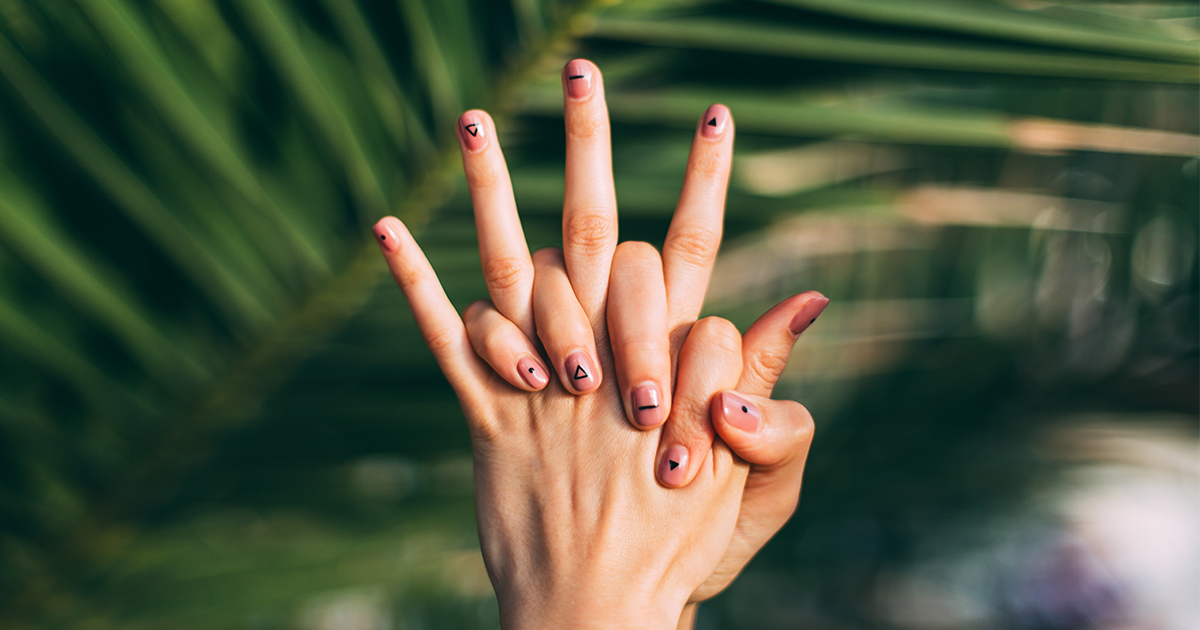“Expressions of grief are as unique as a fingerprint.”
—David Kessler, author, Finding Meaning: The Six Stages of Grief
Self care.
We hear this term thrown around a lot, but just what does it mean? Through life experiences, I’ve learned that it revolves around making ourselves a priority. By tuning into our emotions and triggers, we can take steps to soothe and reduce our anxiety. Sure, breathing exercises, meditation, therapy, and journaling are all great tools, but they can be easy to forget when we’re hurting.
I get it. I’m in a lot of pain after recently losing my 85-year-old father to dementia. I don’t feel like journaling or writing down 3 things I’m grateful for every day. It’s so hard to do when you’re numb. And doing a simple meditation can be difficult because sometimes grief makes it hard to breathe … or to sleep … or to eat.
But I can tell you this: I’m finding my way. Each day, slowly, and with intention. As grief comes in unseen waves, it’s the small things that bring me comfort and healing. I’ve turned to the people I love and trust when I need extra support, so remember that you can, too.
I recently came across an episode of the Gottman Institute’s podcast “Small Things Often,” which offered research-based advice on how to help our partners through difficult times when we’re hurting too. According to the Gottman Institute, it’s the small things, like listening and being present, that build the foundation for solid relationships.

Achieve your mental wellness goals
AbleTo programs give you 24/7 access to tools, activities, and content tailored to your needs. Sign up or log in to start exploring.

Even though I currently don’t have a partner, I am in a relationship with myself. As I work through this season of mourning in my life, I’ve allowed myself to co-opt the Gottman Institute’s “small things” approach in the following ways:
- Listening: We cannot address that which we don’t know, so I’m tuning into my own thoughts and emotions with great compassion. Some days, this means giving myself permission to admit that I feel exhausted and all I want to do is sleep. There are days when I don’t feel like opening the mail or taking a shower, and that’s okay. I’ve tuned into my feelings and tuned out the inner critic. Valuing my feelings reminds me that I matter, which gives me the fortitude to keep hoping for and pushing toward better days.
- Kindness: Sure, it’s easy to extend kindness toward others, but I’ve found that it’s equally important and comforting to be kind and gentle with myself. No judgment, no “shoulds.” Instead of telling myself what I have to do, I’ve been asking myself what I want to do today.
- Honesty: I’ve had to be honest with myself about the fact that I won’t be hurrying up and getting over anything anytime soon. Sometimes we must sit with what hurts in order for it to hurt a little less. There will be some tough days and some better days. I’ll continue to ask myself, as the Gottman Institute advises, “What’s the worst part of this for you?” I’ll name it, own it, sit with it, and work my way through it.
- Joy: It may sound strange to look for joy amid grief, but gratitude has been my biggest small thing. It seems optimism is imprinted on my DNA. As I’ve often read, I’m not grateful for the glass being half full, I’m just grateful I have a glass. Small things … I’m grateful for hot water when I do feel like taking a shower. I’m grateful for the take-out place down the street that delivers my go-to comfort food — plates upon plates of baked ziti — when I do feel like eating. Making and sharing a sweet potato pie. I’m grateful for my bed and sleep when it comes, for a great team and personal time off when I needed it. I’m grateful for the comforting calls from family and friends who listen and show up to lend a hug. And as heartbreaking as dementia’s long goodbye can be, I’m grateful for the moments of love and connection I experienced with my father on his final journey. The times we had to sit in each other’s company, holding his massive, fleshy hands in mine. I’m grateful for all the “I love you’s” we said, the laughter and small pearls of wisdom he shared while his mind was still his own. These are all memories now, some big, some small, each precious and sustaining.
Small things often is such a simple phrase. Yet it speaks volumes about the healing power of consistency and intentionality during difficult times. As I share this journey with so many of you, small things, often, — yeah, that’s what self care looks like for me.
One day, one small thing at a time.
Need help putting these tips into practice?
You may be eligible for virtual therapy, coaching, or on-demand self care from AbleTo. Each program is designed by clinicians and grounded in science. Sign up today and get the support you deserve.
By Roxane Battle
Roxane Battle is the VP of Advocacy and Community at AbleTo. She uses her gift of storytelling to make mental health care more relatable and accessible, especially among marginalized communities. Prior to AbleTo, Roxane spent over 20 years as a news anchor and Emmy-nominated reporter at NBC Minneapolis, CBS, and FOX. Roxane was named an Architect of Change on mariashriver.com and has been featured in Working Mother and Ebony magazines. Her self-help memoir, Pockets of Joy: Deciding to Be Happy, Choosing to Be Free (Whitaker House, 2017), became an Amazon bestseller in multiple categories.
By Roxane Battle
Roxane Battle is the VP of Advocacy and Community at AbleTo. She uses her gift of storytelling to make mental health care more relatable and accessible, especially among marginalized communities. Prior to AbleTo, Roxane spent over 20 years as a news anchor and Emmy-nominated reporter at NBC Minneapolis, CBS, and FOX. Roxane was named an Architect of Change on mariashriver.com and has been featured in Working Mother and Ebony magazines. Her self-help memoir, Pockets of Joy: Deciding to Be Happy, Choosing to Be Free (Whitaker House, 2017), became an Amazon bestseller in multiple categories.
Clinically reviewed by Sarah Dolling, LPC, Clinical Content Producer at AbleTo.
Photo by Daiga Ellaby/Unsplash. Individuals in photographs do not represent AbleTo participants.
The information featured on this site is general in nature. The site provides health information designed to complement your personal health management. It does not provide medical advice or health services and is not meant to replace professional advice or imply coverage of specific clinical services or products. The inclusion of links to other websites does not imply any endorsement of the material on such websites.


